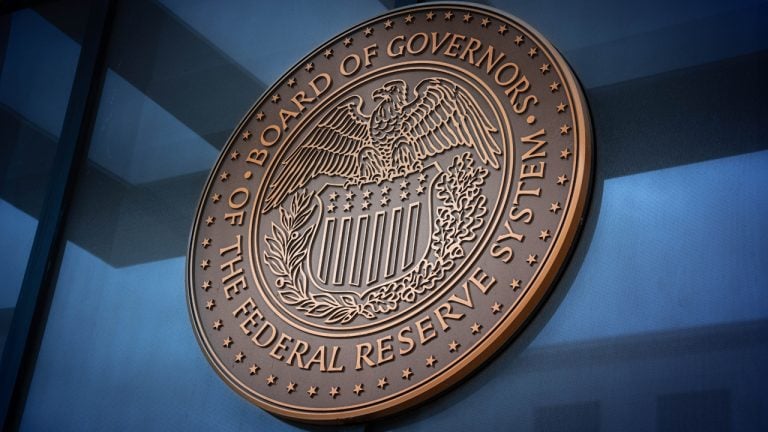
After the market closed on Wednesday, major U.S. indices ended the day without any change, following a previous day's rise. This surge was influenced by the unexpected dovish comments made by Federal Reserve Governor Christopher Waller on Tuesday. Market observers speculate that Waller's remarks indicate a potential shift in the stance of the U.S. central bank, which is significant considering his typically hawkish perspective. Additionally, the latest 'Beige Book' report from the Federal Reserve painted a more concerning economic picture compared to its previous release, highlighting a slowdown in economic growth and an increase in defaults on consumer credit.
Waller's Hawkish Stance Takes a Dovish Turn
During a speech at the American Enterprise Institute two days prior, Christopher Waller of the Federal Reserve stated that inflation rates were progressing as he had anticipated. Waller further elaborated, contemplating the possibility of inflation stabilizing around the 2% mark. He acknowledged, "There are factors that support this outcome," shedding light on the issue.
Expressing his growing confidence, Waller mentioned that he was "increasingly certain that current policy is well-positioned to moderate economic growth" in order to bring down the inflation rate to the targeted 2% level.
Waller also stated:
I will need to see confirmation of this in upcoming data releases. Before the next FOMC meeting, we will receive data on PCE inflation, job openings, a job report, and a supply manager's survey for November. CPI inflation will be released on December 12, the first day of the FOMC meeting.
'Beige Book' Highlights Economic Slowdown; Skepticism Surrounds Possibility of a 'Soft Landing'
Following Waller's speech, U.S. equities experienced an upward trend. However, the subsequent day saw the release of the Federal Reserve's 'Beige Book' survey, which revealed a mix of divergent trends within the U.S. economy. The report depicted fluctuating retail sales alongside a slowdown in manufacturing activities. For instance, retail and automobile sales indicated a shift in consumer spending patterns, while purchases of non-essential items and durable goods like furniture and appliances experienced a decline.
According to the 'Beige Book,' the U.S. manufacturing sector is facing a general decline in future prospects, accompanied by a decrease in demand for business and real estate loans. The Fed's analysis also noted a slight increase in delinquencies on consumer loans, although overall consumer credit remained relatively stable. Additionally, the survey highlighted early signs of financial strain among specific consumer groups. Furthermore, both commercial real estate and multi-family housing activities continued to decline.
Waller's remarks and the findings of the 'Beige Book' shed light on current economic uncertainties. While the Federal Reserve expects a "soft landing," some critics remain skeptical about this positive outcome. Robert Kiyosaki, the author of "Rich Dad Poor Dad," recently expressed concerns about an impending "hyperinflation" and criticized governmental leaders for their heightened "incompetence."
Peter Schiff, an economist and advocate for gold, shared his belief with his followers that the economy is not heading towards a soft landing but rather a "crash & burn" scenario. Bill Holter, a financial writer and expert in precious metals, remarked, "These central banks have completely destroyed their balance sheets and now lack the ability to save anything."
Holter further added:
In short, confetti dollars will lead to a shutdown of the credit markets… After that, it's game over because everything relies on credit.
What are your thoughts on this matter? Share your opinions in the comments section below.
CFTC
investopedia.com
- Do You Need a Gold IRA to Get Retirement?
- What are the Options? Types, Spreads, Example, and Risk Metrics
irs.gov
wsj.com
- Saddam Hussein's InvasionHelped Uncage a Bear In 1991 – WSJ
- How do you keep your IRA Gold at Home? It's Not Exactly Legal – WSJ
How To
Guidelines for Gold Roth IRA
You should start investing early to ensure you have enough money for retirement. As soon as you become eligible, which is usually around age 50, start saving and keep it up throughout your career. It is important to invest enough money each and every year to ensure you get adequate growth.
You may also wish to take advantage of tax-free investments such as a SIMPLE IRA, SEP IRA, and traditional 401(k). These savings vehicles allow you to make contributions without paying taxes on earnings until they are withdrawn from the account. These savings vehicles can be a great option for individuals who don't qualify for employer matching funds.
Savings should be done consistently and regularly over time. You will lose any potential tax advantages if you don't contribute enough.
—————————————————————————————————————————————————————————————-
Based on [POSTTITLE]
by [POSTAUTHOR]
Related posts:
 Economist Peter Schiff: US Dollar Near ‘Historic Crash’ — ‘Forget Soft Landing, It’s Crash and Burn’
Economist Peter Schiff: US Dollar Near ‘Historic Crash’ — ‘Forget Soft Landing, It’s Crash and Burn’
 What is an IRA, and how do you define it? Answers to 7 Most Common IRA-related Questions
What is an IRA, and how do you define it? Answers to 7 Most Common IRA-related Questions
 Robert Kiyosaki: Fiat Money Isn’t Safe, Investors Must Protect Themselves From Central Bankers
Robert Kiyosaki: Fiat Money Isn’t Safe, Investors Must Protect Themselves From Central Bankers
 Robert Kiyosaki’s Advice: Embrace Bitcoin Now for Financial Success
Robert Kiyosaki’s Advice: Embrace Bitcoin Now for Financial Success













